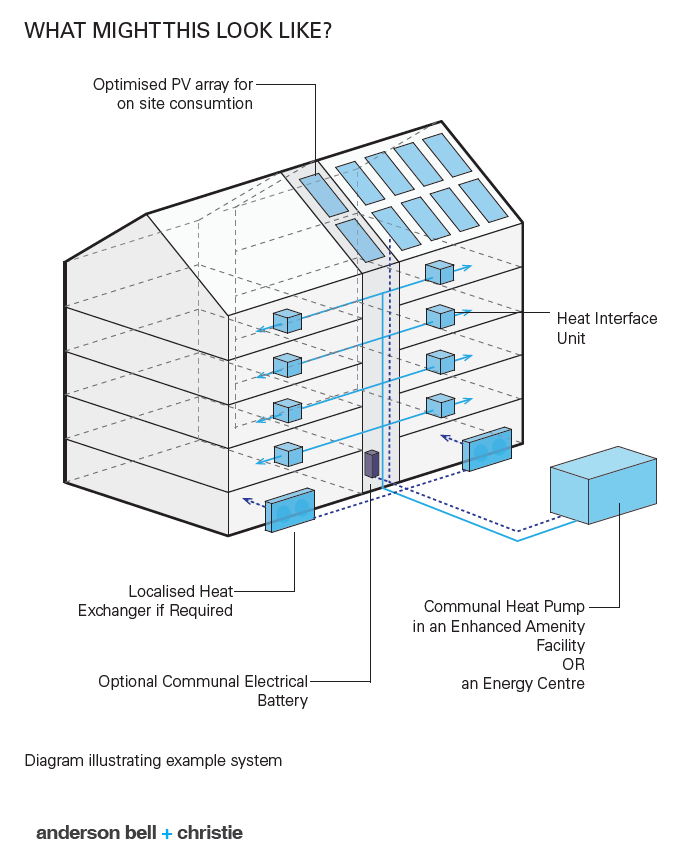
ARCHITECTS Anderson Bell + Christie have launched a new housebuilding strategy said to ‘guarantee’ net zero carbon emissions for every new home.
The practice said the method would save all new homes more than £880 million in energy bills by 2045 – a 34% saving when compared to a current standard new build.
The strategy can be implemented immediately, as the building specifications and materials it advises are all available to housebuilders and do not disrupt the procurement process.
There are four components, all of which must be applied to achieve a net zero outcome:
1. Building fabrics: housebuilders must adopt a pre-selected series of energy efficient fabric specifications. Less effective measures will be left out of construction plans, so that they don’t impact cost and deliverability on a mass scale.
2. Provide zero emissions renewable heat: heat the home with heat pump technology to deliver space heating and hot water in an efficient way. Ideally use communal heat pump systems for entire estates or regeneration areas.
3. Generate renewable electricity: size solar panels to meet hot water demand in the home only: energy made on site is then used on site.
4. Local Offset: the final 15% of the way to net zero requires the occupant to offset their energy use; this can be shared in the community through carbon reduction measures such as active travel, use of electric cars, local food production, and green roofs.
Anderson Bell + Christie is now urging the Scottish construction industry to adopt the approach to deliver the post-pandemic green recovery.
Jonathan McQuillan, director at Anderson Bell + Christie, said, “Scotland has ambitions to be a net zero society by 2045, therefore it is crucial that we change our approach. The standards we currently use on new homes may save some energy and reduce the cost of living, but they do not get close to achieving zero emissions. We need a new way to build affordable houses as we work to meet Scotland’s housing needs. We need to facilitate net zero choices. We believe that a net zero society must start with net zero housebuilding.”









